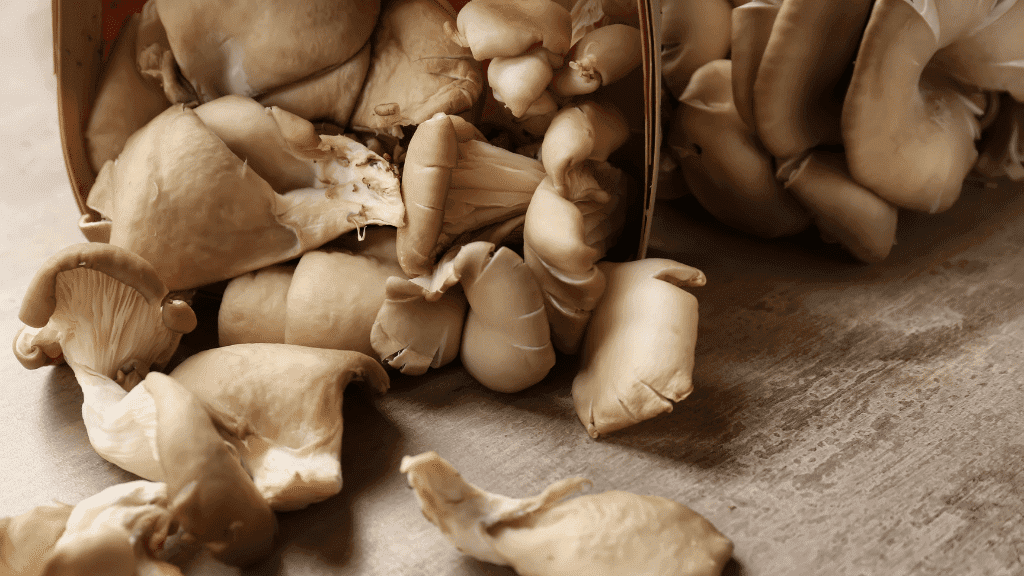So, you're thinking of trying the brain super-food lion's mane - but are worried about becoming addicted.
You're not alone!
We recently got a question from a reader about whether lion's mane is addictive. In this article, we'll share the real-deal behind this powerful shroom and help you understand its affects on your body and brain so you can decide if it's right for you!
Let's dive in.
Is lion's mane addictive?
The good news is, there is no evidence to even remotely suggest that lion's mane as addictive properties. And while it's important to note that any substance, supplement, or food can be abused, lion's mane is not a drug and is not considered an addiction risk.
In fact, lion's mane is a popular functional supplement in coffee, granola, teas, tinctures, and so much more.
And that's not all. Lion's mane is an extremely popular gourmet mushroom because of it's hearty and meaty texture. Many restaurants love using lion's mane as a substitute for white fish.
Is lion's mane psychoactive?
While lion's mane is being studied for its effects on the brain, it is NOT a psychedelic or 'magic' mushroom. Lion's mane mushroom will not cause you to feel high or have a trip.
That's why you're likely to find it stocked with the other mushrooms at your favorite farmer's market or specialty food store!
What are the benefits of lion's mane mushrooms?
Lion's mane mushrooms are being studied for a number of potential functional and health benefits including:
- improvements to cognitive brain function
- a supplement for Alzheimer's disease treatment
- stimulating brain cell growth
- blocking plaque build-up in the brain
- depression and anxiety support
- speeding up brain recovery after injury
- stimulating nerve growth and repair
- menopause and mood support
- its potential to protect against ulcer development
- its potential to help fight cancer
- heart disease
- diabetes
- and so much more!
Head on over to our complete guide on lion's mane benefits to learn more about the studies and research being done on lion's mane mushrooms.
Does lion's mane affect dopamine levels?
Only one very limited study using mice has been done using lion's mane. In 2018, mice were given alcohol lion's mane extract at moderate to high doses every day (between 100 - 400mg per kg of body weight). According to the study, mice who received lion's mane extract exhibited less depressive behavior and dopamine levels stabilized.
More research needs to be done on humans in order to fully understand the effects of lion's ane on dopamine levels and depression.
How can lion's mane not be addictive?
When an edible mushroom has so much brain power potential, how can it not be addictive? The answer lies in its subtlety. Unlike magic mushrooms, you're unlikely to directly feel the lion's mane's effects. Lion's mane is a subtle supplement, working quietly in the background with your brain and body.
So, even if you add it to your morning cup of coffee or take a moderate or high dose of supplemental extract, there's not going to be any feelings of euphoria, disillusion, or any of the effects you might feel when taking psychedelic mushrooms.
Are lion's mane mushrooms safe?
Yes! Lion's mane mushrooms are generally considered to be very safe in all of their forms including raw, cooked, dried, powdered, and extracted. Make sure you've sourced your lion's mane from a reputable grower. Bonus points if you're able to shop locally.
In fact, lion's mane is easy to grow at home on your countertop with a grow kit!
What are the safest lion's mane mushroom brands?
With so many medicinal mushroom brands on the market, it can be really overwhelming to know where to start. Here at Remeday, it's our goal to connect people to the best mushroom brands. We take this role very seriously and only ever recommend lion's mane products that we've tried ourselves and would recommend to our own family and friends.
If you're concerned about product effectiveness and safety, these brands are some of the best on the market:
1. Real Mushroom Lion's Mane Powder
Real Mushrooms are - by far - the leaders when it comes to product quality, safety, potency, and testing. All of their products are third-party lab tested and are scientifically verified for active compounds, making them the best choice for folks looking to get the most functional benefit.
2. Mushroom Revival
If tinctures are more your speed, then you'll absolutely LOVE Mushroom Revival. As a smaller, US-based company, Mushroom Revival is hyper-focused on product sourcing, testing, and quality. We love their tinctures and blends because of how much thought and care goes into their production.
Who shouldn't take lion's mane mushrooms?
Even though lion's mane are very safe when taken properly, there are some people who may want to use caution when taking lion's mane supplements.
1. People who are allergic to mushrooms
If you've had an allergic reaction to other types of mushrooms, use extreme caution when trying lion's mane as it can cause an allergic reaction in some people.
2. People who are breastfeeding or pregnant
Not enough research has been done on the safety and efficacy of functional mushroom supplements for people who are breastfeeding or pregnant. Speak to your doctor if you want to know more about your unique risk factors.
3. People who struggle with low blood sugar levels
Lion's mane mushrooms are being studied for their ability to lower blood sugar levels and support folks with diabetes. But if you struggle to keep your blood sugar levels stable, lion's mane may cause a drop in blood sugar. Use cation and monitor your levels closely if you're taking any functional mushroom supplement.
4. People who are on blood thinners or have surgery scheduled
Lion's mane may have very mild blood-thinning effects. But it's possible that it may affect some people more than others. More research needs to be done. With that in mind, use caution when taking lion's mane if you're on blood-thinning medication or if you have a surgery scheduled.
5. People who are using lion's mane to support larger health issues
Only your doctor can help you understand how lion's mane can be a supportive therapy for a large health concern. It's especially important to speak with your doctor if you plan to take lion's mane at high doses or for an extended period of time.
Want to learn more? Head on over to our guide on lion's mane side effects.
How much lion's mane should I take?
We evaluated the dosage amounts used in some studies and have found that the typical recommended daily dosage for lion's mane varies between 500 - 1,000 mg per day.
That dosage may increase or decrease depending on the particular application or benefit you're trying to achieve.
While human research is limited, some studies focused on evaluating the cognitive effects of lion’s mane used the following dosages:
- 750 milligrams (.75 grams) per day for 16 weeks
- 3 grams per day in tablet form for 16 weeks
- 5 grams per day of the fruiting body in soup or broth
- Additional sources recommend 500-600 milligrams 3 times per day for ongoing maintenance
Always talk to your doctor before starting a new supplement. It's a good idea to start off small and increase your dosage over time.
Want to know how much lion's mane to take for depression, tinnitus, and more? Head on over to our complete guide on lion's mane dosage!
Is it safe to take lion's mane every day?
Lion's mane, like all other mushroom supplements, is generally considered to be very safe to take, even at moderate dosages for long periods of time. Just make sure you're not in an at-risk group and you've talked with your doctor and pharmacist about your dosage levels!
Does lion's mane cause headaches?
There has been much to-do on the internet about whether lion's mane can cause or prevent headaches. Not much is known about the effects of lion's mane on migraines, but some folks use it to help mitigate symptoms. Head on over to our complete guide on lion's mane and headaches if you want to learn more.
Are there any stimulating effects to lion's mane?
Nope! While some users might feel a slight energy boost, unlike cordyceps, lion's mane isn't known to be a stimulant. However, many folks (us included!) love adding lion's mane tincture to a morning cup of coffee to get some of the wonderful brain effects and have a focused day.








.png)
